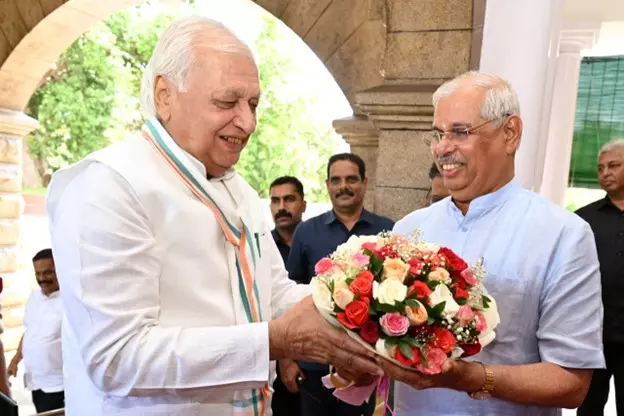The long-running feud between Kerala Raj Bhavan and the LDF government has flared up again – this time over a directive to commemorate one of the most traumatic events in India's history.
Exercising his statutory role as Chancellor of the state’s universities, Kerala governor Rajendra Vishwanath Arlekar, has sparked a row by issuing a circular directing all vice-chancellors to observe August 14 as “Partition Horrors Remembrance Day”.
Educational exercise
The order, sent out on August 11, instructs universities to organise seminars, theatrical performances, and other programmes that portray the human suffering, mass displacement, and communal violence that accompanied the 1947 partition of India.
The circular also goes further, asking vice-chancellors to submit a detailed action plan of these events to the Raj Bhavan. It specifies that the day should be marked not merely as a symbolic gesture but as an educational exercise, with active participation from students, faculty, and administrative staff.
Notably, the governor’s directive aligns with the central government’s initiative launched in 2021, when Prime Minister Narendra Modi declared August 14 as Partition Horrors Remembrance Day.
Parallel governance
The Union government said the observance would “remind the nation of the need to remove social divisions and strengthen the spirit of unity, social harmony, and human empowerment.” The University Grants Commission had also issued a similar advisory to higher education institutions across the country in 2022.
In Kerala, for the ruling LDF, it is yet another example, alongside disputes over vice-chancellor appointments, university legislation, and ceremonial functions, of what it calls the Governor’s “parallel governance”.
Education minister V Sivankutty wasted no time in questioning both the intent and the propriety of the Raj Bhavan’s directive, terming it 'another RSS agenda'.
“The Governor has no authority to issue such instructions to universities without consulting the state government. Education is a subject under the State List, and this is a clear encroachment on the rights of the elected government. Once again, the Governor is trying to run a parallel administration from the Raj Bhavan,” said the minister.
Sivankutty added that the decision on whether and how to observe such occasions in educational institutions must rest with the state cabinet. “We are not against remembering the pain of partition or any historical event,” he said. "But the process and purpose must be decided democratically, not unilaterally," he added.
Political motives?
Supporters of the Governor’s initiative argued that Partition Horrors Remembrance Day offers an opportunity for students to engage with a defining chapter of history, fostering empathy and awareness beyond regional boundaries.
Critics, however, suspect political motives, pointing to the Bharatiya Janata Party’s emphasis on partition narratives as part of its broader ideological agenda based on communalism.
The chancellor’s circular appears to have been crafted to leave little room for ambiguity. It calls on vice-chancellors to ensure that observances “highlight the sacrifices and resilience of the people who bore the brunt of partition” and to “reinforce the values of national unity and integrity.”
The tone is prescriptive, not advisory, something that has become a hallmark of Raj Bhavan’s recent communications with the state’s higher education heads, pointed out sources.
Debate over governor's powers
This insistence on direct engagement with vice-chancellors has been a constant point of friction between the Governor and the Kerala government.
The Kerala government maintains that such correspondence should go through the higher education department, while the Governor has repeatedly asserted his right, as Chancellor, to communicate and issue instructions directly.
For students and faculty, the circular raises practical questions. With only three days to prepare, can universities mount meaningful events that go beyond token observance? Will participation be voluntary or mandatory? And how will institutions navigate the political undercurrents while remaining focussed on the historical and educational aspects?
The dispute also touches on a deeper constitutional debate about the powers of governors in India’s federal structure. While the position is largely ceremonial, governors in several states have clashed with elected governments over policy, legislation, and administrative matters.
In Kerala, the confrontation has been particularly pronounced, with legal challenges and public sparring becoming almost routine.
As of 12 noon on August 11, the higher education department had not issued any separate directive to universities regarding August 14.



